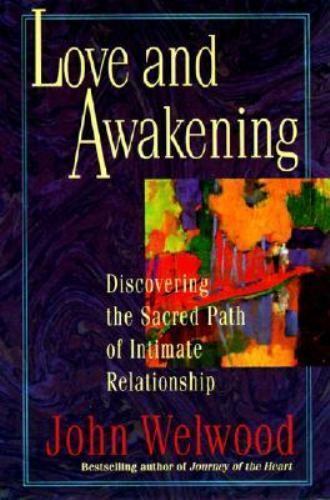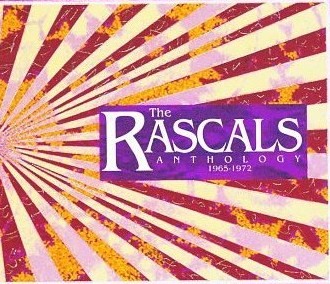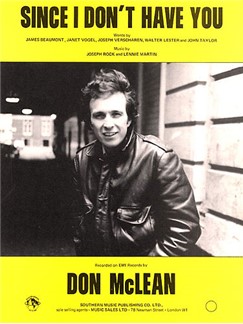|
home | what's new | other sites | contact | about |
||||||||||||||||
|
Word Gems exploring self-realization, sacred personhood, and full humanity
Elenchus. “The Wedding Song” (TWS) also poses Welwood’s central question: “What is the reason for becoming man and wife?” Kairissi. The Song's answer was "the love that brings you life." Well, this doesn't tell us too much but TWS fleshes out this phrase in a hundred pages. So, tell me, Elenchus, does Welwood arrive at the same answer? E. I think he does, but from another angle. We'll need to talk about this. K. You know, this whole subject of the meaning of love and how it evolves us is so important and so interesting. I’m reminded of what Gibran said about this, which we’ve quoted elsewhere: authentic romance, the best means toward self-realization There is one avenue to the sublime which opens the door to the soul widest of all. As we learn from Kahlil Gibran, via his biographer, "love is a means - perhaps the best means - to self-realization, without which one is less than a full person"; which suggests that we find our godlike maturity only with love's mediation. This augmented level of sentience is what "The Wedding Song" refers to as lovers "giving life," each to the other. Such reciprocity becomes aid to evolvement, an opening of the eyes to how things truly are and what they portend for us. The sacred beloved, more than any other agent of vivification, serves as catalyst to this enhanced awareness. With her, one “sees nothing but eternity,” a cosmic destiny unfurled, an invitation to the mind of God; without her, he will not find reason to fully develop himself. She is the one he stays alive for; it is she, her "made in the image" beauty, which ignites "the translucence," a shining through, "of the eternal splendor of the One" and of the Truth; and without receipt of such he will not endure the terror of living forever. E. We could say, Gibran wraps it all up for us – which begs the question, why should we review Welwood’s work if no new ground is plowed. But I speak as a fool. an elegant and well-phrased restatement from Welwood K. Gibran might offer us a stellar work of art in his synopsis, but this doesn’t mean we’re not interested in other works of art. There’s always room for one more marvelous painting. And this is what Welwood offers us: an elegant and well-phrased restatement, arguably, of the most compelling subject in the world: the meaning and nature of authentic romantic love. E. As you like to say – oh, that little thing. K. Right. We can never learn all there is to learn, especially from one teacher, on any important subject, and so we welcome and eagerly invite Welwood’s offering here. E. So, where to begin? K. Let’s say a word more about his central question: “What is a couple? What is the purpose of two people committing themselves to a life together, beyond just raising children or making a cozy home? What are two people who love each other really meant to do together? [more than] looking to one another for pleasure, comfort, and need-gratification.” E. This is a question that has been asked for a long time…
K. Is there another reason? E. That’s a good point. One hundred thousand love songs seem to agree with you. It's what preoccupies us, what everyone wants to know. K. Let’s talk about the question, “What is a couple?” What most people would say is, it’s a way to be happy, it’s seeking for pleasure. E. And there’s nothing wrong with that, as far as it goes. And yet, as we look around, we see all these many couples, seeking for happiness, for pleasure, but they all seem to fall short. K. Welwood, the clinical psychologist tells us why. Let’s look at some of his thoughts on this -- direct quotations and paraphrasations: saying no to pain can mean saying no to ourselves
K. I’ll tell you what this reminds me of. Welwood is recapitulating 60 years of Krishnamurti’s lectures. It’s all about the “ego images” and the “false self.” We get hurt by life, we hunker down, we adopt a personality to deal with the pain. In the end, we believe that this reduced version of ourselves is the real us. E. But it’s all a distortion. And so when love comes knocking, we get spooked. We don't know how to deal with this in the right way. true love requires us to give up who we think we are
K. When love comes calling, our inner “divided” person is thrown into bold relief. It’s then that we find out what we’ve been trying to hide. love opens the doors to long-barred sections of the soul
E. And this is why relationships can make us feel out of control; why it's sometimes said, "you bring out the worst in me." K. You say the nicest things. we find the true mate via detour into 'the long dark night of the soul'
E. All of this helps us understand the universal problems associated with love relationships. Welwood does a good job outlining the pitfalls and causes. But where he really shines, I think, is his discussion of the glory and majesty of love. He poses a new question: what is it about love that we find so compelling
K. This is the subject of 100,000 love songs. We’re all so mesmerized by the uplifting feelings of romantic impulse. feeling awake and alive, to ourselves
E. Kriss, we have often stated how much we enjoy simply being together, just doing everything together; much of the time this desire for what we call "darling companionship" outweighs even the compulsion for physical intimacy. K. And now Welwood helps us understand. E. More than being together, it's being together. K. A good deal of the misunderstanding here relates to the source of our joy. We think it’s in the other person. It’s actually not but comes from within our own souls. true love unleashes something vast and boundless
K. In our writings and discussions we have often said that true mates are God’s gifts to each other to help them mature and evolve spiritually. I think Welwood does a wonderful job explaining why this is so. sacred alliance: heart versus soul connection
E. I am knocked down flat by Welwood's definition of soul resonance: “A soul connection is a resonance between two people who respond to the essential beauty of each other’s individual natures..." E. He is exactly correct. K. He has well articulated the beauty of this concept. But, not everyone would share your fervor. You feel moved because you've personally experienced the attendant inner seismic shift. E. And you have not? K. (silence) E. Kriss, as I survey all this material, I ask myself, what is really holding us back from finding true love? Well, there is the issue of being spiritually mature enough to enter authentic relationship, but, in a practical sense, I think it comes down to this: We judge ourselves to be unworthy, defective, undeserving of love. We don’t like the idea of introspection and “going within” because we’re terrified that we’ll find out we’re really a bad person. K. We have often said, however, that the true mate, each for the other, reveals the beauty of the face of God.
the true mate's 'made in the image' capacities allows one to access the 'beatific vision'
K. This fear of gathering evidence of one's own unworthiness keeps people crazy. It’s a fear that’s part of the ego’s conditioned self. We believe our own propaganda. We sabotage a relationship because we deem ourselves to be unlovable. the rushing sense of the beauty of one's own soul E. Now, let’s notice the contrast. When we “fall in love” the conditioned self is temporarily broken. And what happens? All this radiant, bursting energy, long locked up in the soul, comes streaming out! We find someone who helps us know our own value. And now the floodgates are torn down and there’s a rushing sense of good will – about oneself. We’ve never felt this before, and it’s so intoxicating. K. Well, the ego isn’t going to take this lying down and so, very quickly, it regathers itself to send out “fake news” that we’re no-good after all. E. Even so, this “backsliding” constitutes an invitation from God/the Universe to enter the self-cleansing process of the “long dark night of the soul.” K. Elenchus, so much could be said here, but we’ve already said it in thousands of other pages. But what I want to emphasize, as you just did, is the fact that true love unleashes one’s “soul energies” as nothing else. And it just feels so good to feel good. And what is the nature of this well-being? It’s a perception of one’s own inherent “made in the image” godliness – delivered courtesy of one’s Twin Soul.
E. We were to briefly comment on an item or two where we might disagree with Welwood. K. Why don’t you do that, Elenchus. E. (sighing) Well, I don’t want to make much of it as there’s so much value in his book. However, at times the good doctor makes statements to the effect, “we can bring forth” or “forging an authentic connection” or “when the relationship begins to feel too familiar” or other expressions of dwindling human affection or effort. To this end, he discusses how eventually the best relationships tend to lose their fizz and then one must shore up the defenses. K. And now we enter the realm of “after the fireworks, you have to work on your marriage.” But you and I know that it doesn’t play out that way, not an atom. E. In the true love, there is no “forging,” no “bringing forth,” there is no “working on the marriage”; not really, not the way they mean it.
Kahlil Gibran: "It is wrong to think that love comes from long companionship and persevering courtship. Love is the offspring of spiritual affinity and unless that affinity is created in a moment, it will not be created for years or even generations." Not only is it created in a moment - you either have it or you don't - but cannot be uncreated.
K. You and I know too well what this means. In our history, we endured many rocky periods during which we were very angry with each other and, truth be told, if what we had together were a function of mere human effort, mere bio-stimulation, we would have flushed each other away a long time ago. E. We tried to do that, many times. I tried to get rid of you for years, I was so angry. I mean, I really worked at it. But… there was “no getting over you.” heaven and earth might pass away, but true love, part of God's own mind and essence, will remain right where it is E. In the real love, you don’t have to do anything, it will take you for a ride and not let you go, it will "forge" you, it will "work on" you. Yes, you can delay, you can make yourself miserable and angry, but this doesn’t mean that you’ll be getting rid of her. In the real love, you’re connected – absolutely, truly, not just as a poetic statement – connected at the soul level, and there’s no way to break that connection. Heaven and earth will pass away, but Jesus’ dictum of the “marriage of two souls which cannot be sundered” remains unviolated. K. Oh, that little thing. what is the 'timeless moment of clarity' E. So, tell me, Kriss, here at the end - we often speak of "one moment of cosmic clarity" which evolves the soul. But just what is the "clarity" of that stupendous moment? K. I think it's the timeless moment of realization, a blazing instant of "open eyes" - a first moment of new-creation - to perceive oneself as a son or daughter of God... basking in the warming reality that... love is real, love is eternal, love is our divine heritage. everything with a beginning is also subject to an ending K. But there exists a domain beyond the reach of time’s degradation. There, things simply exist, eternally, have always been, have no opposite, no duality, and do not suffer loss. E. Let me say, too, that Welwood’s insights can hardly be mentioned too often. Absolutely first-rate. K. Elenchus, there is so much in the WG writings now that it’s hard to keep track of what's most important. E. Rediscovering Welwood, truly, is a “basement of the British Museum” moment.
|
||||||||||||||||
|
|




